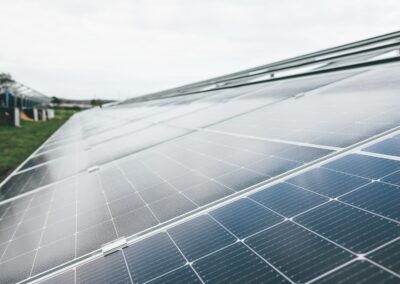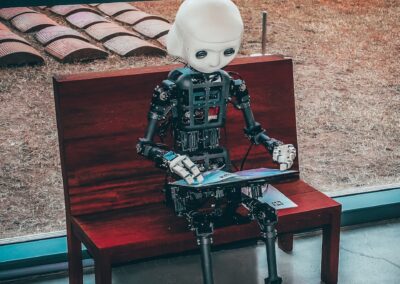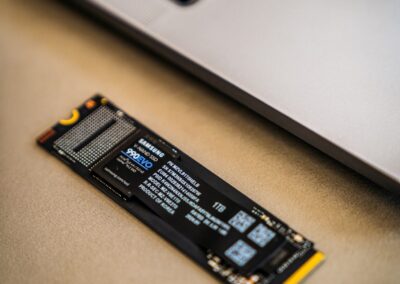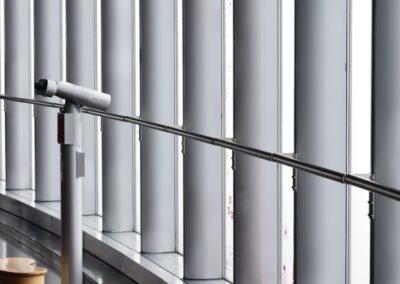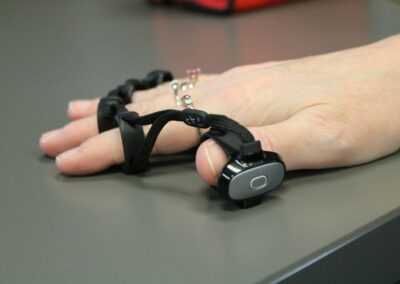Optimizing Performance and Efficiency in Energy-Efficient Buildings
The Emerging Role of Digital Twins in Energy Management
The future of digital twins in energy management is poised to redefine how we approach the optimization of performance and efficiency, particularly in energy-efficient buildings and infrastructure. Digital twins, as advanced digital replicas of physical entities, offer unparalleled capabilities in monitoring, analyzing, and improving energy systems. For business executives, mid-level managers, and entrepreneurs, understanding the impact of this technology is crucial for leveraging its full potential in enhancing building performance.
In regions such as Saudi Arabia and the UAE, where rapid urban development is complemented by ambitious sustainability goals, the integration of digital twins into energy management strategies can drive significant advancements. These digital models allow for real-time data collection and analysis, enabling precise monitoring of energy usage, system performance, and operational efficiency. By simulating various scenarios and outcomes, digital twins provide actionable insights that facilitate informed decision-making, ultimately leading to optimized energy management.
The benefits of digital twins extend beyond mere monitoring. They enable predictive maintenance by identifying potential issues before they become critical, thereby reducing downtime and extending the lifespan of energy systems. Additionally, digital twins support dynamic adjustments to optimize energy consumption, contributing to lower operational costs and enhanced sustainability. As a result, the adoption of digital twins can position organizations at the forefront of energy efficiency and operational excellence.
Implementing Digital Twins in Energy-Efficient Buildings
Integrating digital twins into energy-efficient buildings involves several strategic considerations. The first step is establishing a robust data infrastructure to support the continuous flow of information required for effective digital twin operations. This includes deploying advanced sensors and IoT devices that can capture real-time data on energy consumption, environmental conditions, and system performance. In rapidly growing cities like Riyadh and Dubai, investing in cutting-edge technology and data management systems is essential for achieving seamless integration.
Collaboration with technology providers and industry experts is also crucial for successful implementation. Engaging with firms that specialize in digital twin technology can provide valuable insights and technical expertise, ensuring that the digital models are tailored to the specific needs of energy-efficient buildings. For instance, in Saudi Arabia’s evolving urban landscape, digital twins can be customized to monitor and manage the energy performance of new high-rise developments and smart buildings, aligning with national sustainability goals.
Moreover, aligning digital twin initiatives with broader environmental and economic strategies can enhance their effectiveness. Government initiatives such as Saudi Arabia’s Vision 2030 and the UAE’s Vision 2021 emphasize the importance of sustainable development and technological innovation. By integrating digital twins into these national frameworks, organizations can benefit from regulatory support, funding opportunities, and a conducive environment for innovation, thereby accelerating the adoption and impact of this technology.
Challenges and Solutions in Adopting Digital Twins
Despite their potential, the adoption of digital twins in energy management presents several challenges. One significant challenge is the complexity of integrating digital twins with existing building systems and infrastructure. Many energy-efficient buildings are equipped with legacy systems that may not be compatible with the latest digital twin technologies. Addressing this challenge requires a strategic approach, including phased integration and comprehensive system upgrades to ensure compatibility and functionality.
To overcome these hurdles, organizations can adopt a phased implementation strategy, starting with pilot projects to test and refine digital twin applications before scaling up. This approach allows for the identification of potential issues and the optimization of technology solutions, minimizing risks and ensuring a smoother transition. Additionally, investing in training and upskilling programs for personnel can help build the necessary expertise to manage and maintain digital twin systems effectively.
Data security and privacy are also critical considerations in the adoption of digital twins. As these systems rely on continuous data collection and transmission, safeguarding sensitive information against cyber threats is paramount. Implementing robust cybersecurity measures, including encryption, access controls, and regular audits, is essential to protect data integrity and maintain the trust of stakeholders.
Conclusion: Embracing the Future of Energy Management
The future of digital twins in energy management holds immense promise for optimizing the performance and efficiency of energy-efficient buildings and infrastructure. By harnessing the capabilities of digital twins, business executives, mid-level managers, and entrepreneurs can achieve significant advancements in energy management, contributing to operational excellence and sustainability.
In regions like Saudi Arabia and the UAE, where ambitious development goals and sustainability initiatives are driving rapid change, the adoption of digital twins represents a strategic advantage. By investing in advanced technology, collaborating with industry experts, and aligning initiatives with national strategies, organizations can effectively integrate digital twins into their energy management practices.
As the technology continues to evolve, embracing digital twins will be essential for staying ahead in the competitive landscape of energy management. By leveraging this technology, organizations can enhance their operational efficiency, reduce costs, and contribute to the broader goals of sustainability and innovation.
—
#DigitalTwins #EnergyManagement #EnergyEfficientBuildings #SaudiArabia #UAE #Riyadh #Dubai #ArtificialIntelligence #ModernTechnology #BusinessSuccess #LeadershipSkills #ProjectManagement




